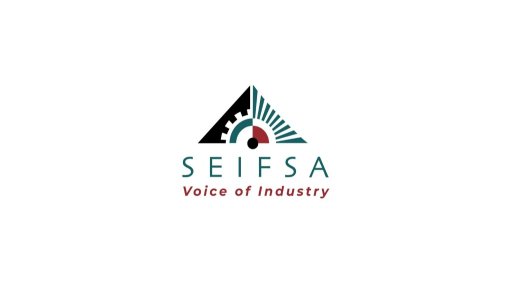Brownfield restarts offer faster route to production


JOHN SISAY Brownfield mining presents a more sustainable and efficient approach when executed correctly
As the global copper market is increasingly constrained, reactivated existing mines present a cost-effective, time-efficient solution that is critical to addressing the current copper supply shortage, says copper producer Consolidated Copper Corporation (CCC) CEO John Sisay.
“Most analyses now point to a refined-market deficit of around 150 000 t as early as 2026. The fact that disruption at a single large operation this year was enough to shift a major bank’s 2025 forecast from surplus to deficit shows just how finely balanced things are,” he cautions.
Amid these constraints, reactivating existing mines presents a viable solution as these mines can restart operations within a few years, as opposed to a decade or more for greenfield projects, alongside offering a faster return on investment compared with a new project.
Further, by reusing existing infrastructure, such as shafts, roads, water and power lines, the investment required for a brownfield project is typically between 50% to 70% lower, says Sisay, adding that the existing footprint of a developed copper mine also results in a smaller environmental impact compared to greenfield projects.
He asserts that, when executed correctly, brownfield mining presents a more sustainable and efficient approach that ensures continued resource supply, ultimately complementing, rather than competing with, greenfield projects.
“The geology is known, the infrastructure and permits are in place, and surrounding communities are already familiar with mining operations. You’re not starting from scratch, you’re accelerating from a standing start,” states Sisay.
Leveraging these opportunities, CCC aims to deliver tangible value in Namibia by restarting production at the Tschudi mine in northern Namibia and the Otjihase and Matchless twin underground copper mines in central Namibia.
These mines boast a historical record of producing copper cathode and concentrate that meets stringent international standards.
Sisay explains that the company prioritised Tschudi as its first major project owing to its potential for a rapid return to production.
He explains that this mine presented an immediate opportunity to process the remaining residual mined material onsite, enabling the company to bring London Metal Exchange-grade copper cathode to the market quickly while laying the groundwork for a full restart of mining.
Tschudi, he says, is a proven asset with strong infrastructure.
The initial phase of restarting mining there has provided practical means to re-establish operations, rebuild local capacity and test systems before moving towards full mining, adds Sisay.
“The timing also made sense. After four years on care and maintenance, there’s renewed momentum in Namibia around revitalising mining and driving local value, and Tschudi is a natural place to begin that process,” he says.
Copper Exploration, Project Expansion
Concurrent to brownfield endeavours, CCC is advancing an active drilling programme across the Otjihase and Matchless mines to verify and expand the existing resource base.
In parallel, detailed engineering and costed refurbishment studies are underway for a shared processing plant, which has a design capacity of about 800 000 t/y.
These studies will inform updated feasibility assessments and refine the development timeline for a potential restart, says Sisay.
Current progress indicates steady advancement towards defining the technical and economic parameters required to bring both assets back into production in the near- to medium-term, he adds.
Despite CCC’s positive outlook, Sisay notes that bringing historical underground operations, such as Otjihase and Matchless, back into production presents distinct challenges, such as the need for a suitably skilled underground workforce.
To address this, CCC has adopted a dual approach whereby, in the short-term, the company engages experienced specialists to ensure operational readiness and effective know-ledge transfer, while in the longer-term, it will implement structured training programmes to build local technical capacity and create a sustainable workforce.
Alongside workforce development, CCC is refurbishing ageing infrastructure, upgrading equipment to meet modern safety and environmental standards and re-establishing reliable supply chains for materials and critical spares.
Additionally, CCC’s operations actively contribute to Namibia’s key long-term priorities, which include retaining greater value from its mineral wealth through job creation, skills development and local processing.
Sisay asserts that CCC’s operations actively contribute to these national priorities.
In particular, over 75% of the company’s refurbishment investments to date have been directed to Namibian contractors, supporting local capability and keeping value in-country.
At Tschudi, where residual material is currently being processed, CCC continues to prioritise local suppliers, invest in technical upgrades and support early-career engineers onsite.
Article Enquiry
Email Article
Save Article
Feedback
To advertise email advertising@creamermedia.co.za or click here
Announcements
What's On
Subscribe to improve your user experience...
Option 1 (equivalent of R125 a month):
Receive a weekly copy of Creamer Media's Engineering News & Mining Weekly magazine
(print copy for those in South Africa and e-magazine for those outside of South Africa)
Receive daily email newsletters
Access to full search results
Access archive of magazine back copies
Access to Projects in Progress
Access to ONE Research Report of your choice in PDF format
Option 2 (equivalent of R375 a month):
All benefits from Option 1
PLUS
Access to Creamer Media's Research Channel Africa for ALL Research Reports, in PDF format, on various industrial and mining sectors
including Electricity; Water; Energy Transition; Hydrogen; Roads, Rail and Ports; Coal; Gold; Platinum; Battery Metals; etc.
Already a subscriber?
Forgotten your password?
Receive weekly copy of Creamer Media's Engineering News & Mining Weekly magazine (print copy for those in South Africa and e-magazine for those outside of South Africa)
➕
Recieve daily email newsletters
➕
Access to full search results
➕
Access archive of magazine back copies
➕
Access to Projects in Progress
➕
Access to ONE Research Report of your choice in PDF format
RESEARCH CHANNEL AFRICA
R4500 (equivalent of R375 a month)
SUBSCRIBEAll benefits from Option 1
➕
Access to Creamer Media's Research Channel Africa for ALL Research Reports on various industrial and mining sectors, in PDF format, including on:
Electricity
➕
Water
➕
Energy Transition
➕
Hydrogen
➕
Roads, Rail and Ports
➕
Coal
➕
Gold
➕
Platinum
➕
Battery Metals
➕
etc.
Receive all benefits from Option 1 or Option 2 delivered to numerous people at your company
➕
Multiple User names and Passwords for simultaneous log-ins
➕
Intranet integration access to all in your organisation



















